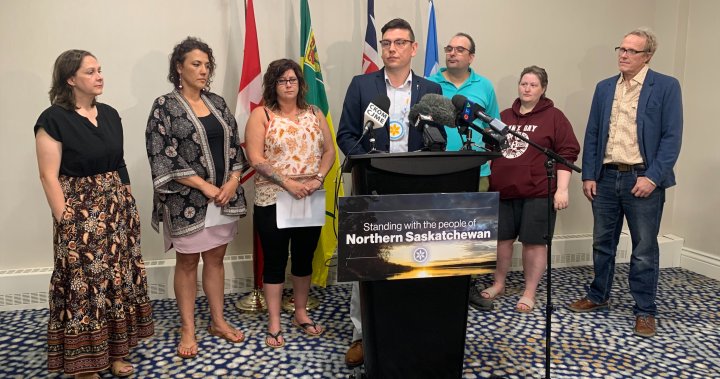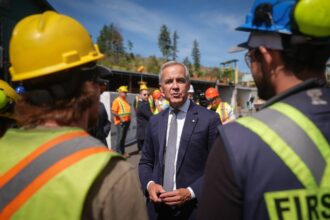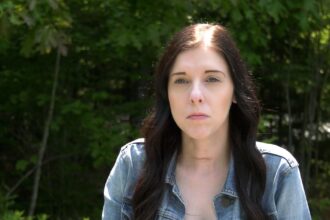Scorched earth and shattered trust lie in the wake of Saskatchewan’s devastating wildfires, as evacuees gather to voice their mounting frustration with what they describe as a catastrophic failure of government response. At a charged town hall meeting this weekend, residents from Buffalo Narrows, La Loche, and surrounding communities demanded accountability from provincial officials who they claim abandoned them during their hour of greatest need.
“We were left to fend for ourselves while our homes burned,” said Marie Cardinal, a Buffalo Narrows resident who lost her family home of three generations. “The government knew these fires were coming. Where was the emergency planning? Where were the resources when we needed them most?”
The ongoing wildfire crisis has forced over 1,900 people from their homes across northern Saskatchewan, with CO24 News confirming that many evacuees have been displaced for more than two weeks. The Saskatchewan Public Safety Agency (SPSA) reports that 25 structures have been destroyed in Buffalo Narrows alone, with damage assessments still ongoing in other communities.
Provincial opposition leader Carla Beck attended the town hall, where she criticized Premier Scott Moe’s government for what she called “a profound failure of leadership” in Canadian politics. Beck pointed to repeated warnings from northern leaders about insufficient resources and preparation dating back months before the crisis erupted.
“These communities warned about the extreme fire risk, they asked for help, and the government’s response was inadequate and late,” Beck told the assembled crowd. “The question now is not just about accountability, but about how we rebuild both these communities and the broken trust.”
Government officials defended their response, citing unprecedented fire conditions and resource limitations. Environment Minister Christine Tell insisted that provincial teams had “worked around the clock” to contain the blazes, but acknowledged that communication breakdowns had occurred.
“We understand the frustration and we’re committed to reviewing our emergency protocols,” Tell said at a separate press conference in Regina. “But I want to be clear that our firefighters and emergency personnel have been working heroically in extremely challenging conditions.”
That explanation rings hollow for many Canada News followers tracking the disaster. Evacuees pointed to specific failures: delayed evacuation orders, insufficient firefighting equipment, and poor communication that left many wondering whether their homes still stood.
Indigenous leaders from affected communities expressed particular outrage, noting that First Nations communities often face disproportionate impacts during environmental disasters.
“Our people have lived on this land for generations. We know when the fire risk is high, we know what needs to be done,” said Elder Joseph Morin from La Loche. “But when we spoke, nobody in power listened. That’s not just poor emergency management—that’s systemic neglect.”
The economic toll continues to mount as well. Local business owners report devastating losses, with insurance claims expected to reach into the tens of millions. Tourism operators worry about long-term impacts on the region’s reputation as a wilderness destination.
As cleanup efforts begin in some communities, the political fallout appears far from over. Evacuees are organizing advocacy groups and considering legal action against the province for alleged negligence in fire preparation and response.
International fire management experts note that Saskatchewan’s experience reflects a worldwide pattern of governments struggling to adapt emergency services to increasingly severe climate-driven disasters.
“What we’re seeing across the globe is that traditional firefighting approaches are becoming insufficient as climate change creates more extreme fire conditions,” said Dr. Elena Santoro, a wildfire management specialist. “Governments everywhere are learning painful lessons about the need for more robust prevention, early detection, and community-based response systems.”
As displaced residents await word on when they might return home—and what they might find when they do—the question lingering over northern Saskatchewan isn’t just about rebuilding structures, but about whether the relationship between these communities and their government can ever be fully restored. Will this disaster finally force a fundamental rethinking of how Saskatchewan prepares for and responds to the escalating threat of wildfires in a changing climate?


















